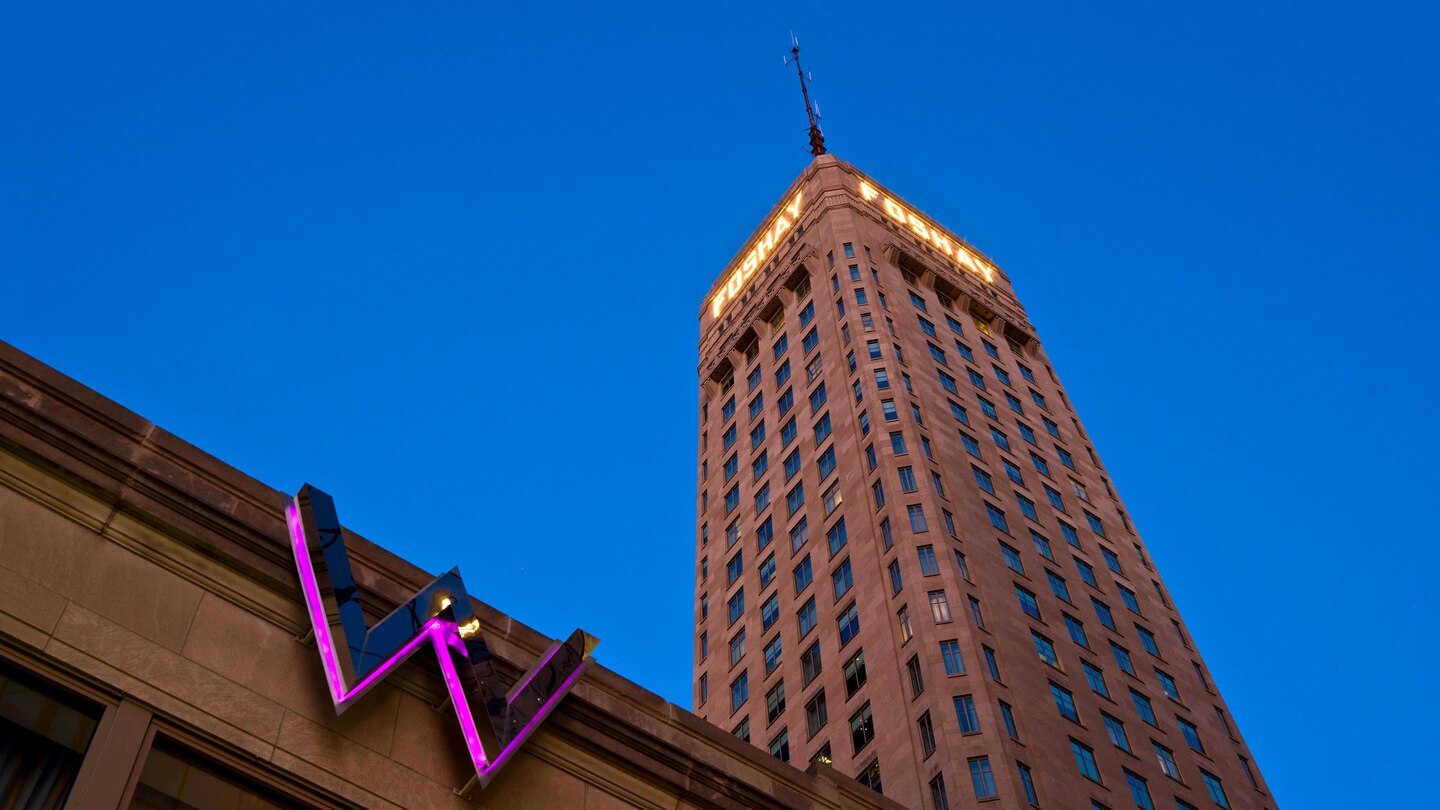W Minneapolis -- The Foshay is a downtown landmark. | File
W Minneapolis -- The Foshay is a downtown landmark. | File
A wraith is a spectral figure, a ghost whose eerie appearance puts a cold chill down people’s back and their teeth to chattering.
Raith Capital Partners is a New York commercial real estate firm that focuses on — preys upon, some would say — distressed firms. Ask the owners of W Minneapolis — The Foshay, a historic building in downtown Minneapolis that was converted into a luxury hotel in 2008. They might prefer a frightening spirit than a voracious company that is seeking to foreclose on the property.
Raith has mezzanine debt on the W Hotel, and according to the hotel, Raith has been highly demanding and is unwilling to work with it. The hotel says Raith is pursuing ownership.
This comes at a time when luxury hotels such as W Minneapolis are cash-starved due to the COVID-19 pandemic and related shutdown orders. Through no fault of their own, hotels saw their business dry up during the pandemic.
And yet hotel borrowers are seeking payments and have shown little willingness to help W Minneapolis find a way out of this box.
Mezzanine debt is “the middle layer of capital that falls between secured senior debt and equity,” as defined by Divestopedia.com. “This type of capital usually is not secured by assets, and is lent strictly based on a company's ability to repay the debt from free cash flow.”
For a busy hotel like W Minneapolis, that usually is not a concern. Cash comes in on a steady stream, enabling it to pay down its debt. But no one could have figured on 2020.
Bill Landis, Nelson Hioe and Michael Suchy founded Raith Capital Partners in 2012.
“The firm was founded on the belief that a fully integrated real estate investment and asset management platform provides for a higher level of control over the assets, leading to better performance at the asset level and ultimately better returns for our investors,” the company history states.
“Since inception, Raith has executed on distressed debt investments, direct equity acquisitions, high-yield commercial mortgage-backed securities and mezzanine loans. Raith’s long-term relationships with investors are a critical measure of our success, the basis for which is open communication and the proper alignment of our capital. Building on the team’s relationships with institutional investors, Raith raised its first discretionary real estate private fund in 2013. Across its equity and debt platforms, Raith has invested more than $800 million in debt and equity investments.”
Acquiring W Minneapolis could add a jewel to its possessions. The building was placed on the National Register of Historic Places in 1978 and has been a Minneapolis landmark for decades.
But the biggest city in Minnesota, a hub for business and tourists across the Upper Midwest, has been in the midst of a series of storms in 2020. First came the COVID-19 pandemic, which slowed business and pushed the city, state, nation and world into a steep economic downturn. Then came the killing of George Floyd while in policy custody May 25, which sparked violent riots that left parts of Minneapolis in flames and rubble. That further impacted hotels in the Twin Cities.
Is Raith Capital taking all that into account? No, it is not, W Minneapolis says. Instead, it is checking out the hotel as a possible acquisition. For a historic structure like W Minneapolis, it seems like a low point in its fabled history.
Raith Capital Partners did not respond to requests for comment.





 Alerts Sign-up
Alerts Sign-up